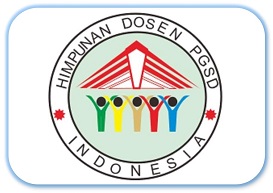The Influence of Parenting Style and Interpersonal Intelligence on Verbal Bullying Behavior of Elementary School Students
 ), Edwita Edwita(2), Gusti Yarmi(3),
), Edwita Edwita(2), Gusti Yarmi(3), (1) Universitas Negeri Jakarta, Jakarta City
(2) Universitas Negeri Jakarta, Jakarta City
(3) Universitas Negeri Jakarta, Jakarta City
 Corresponding Author
Corresponding Author
DOI : https://doi.org/10.24036/jippsd.v8i1.126030
Full Text:
 Language : en
Language : en
Abstract
Keywords
References
Agustina, R., Marlina, L., & Fahmi, F. (2020). Hubungan Pola Asuh Orangtua Dengan Kecerdasan Interpersonal Anak. Thufuli Jurnal Ilmiah Pendidikan Islam Anak Usia Dini. https://doi.org/10.33474/thufuli.v2i1.6314
Arseneault, L., Bowes, L., & Shakoor, S. (2009). Bullying Victimization in Youths and Mental Health Problems: ‘Much Ado About Nothing’? Psychological Medicine. https://doi.org/10.1017/s0033291709991383
Asri, S. (2018). Hubungan Pola Asuh Terhadap Perkembangan Anak Usia Dini. Jurnal Ilmiah Sekolah Dasar, 2(1), 1. https://doi.org/10.23887/jisd.v2i1.13793
Bannink, R., Broeren, S., Looij-Jansen, P. M. van de, Waart, F. G. d., & Raat, H. (2014). Cyber and Traditional Bullying Victimization as a Risk Factor for Mental Health Problems and Suicidal Ideation in Adolescents. Plos One. https://doi.org/10.1371/journal.pone.0094026
Bella, F. D., Fajar, N. A., & Misnaniarti, M. (2020). Hubungan Pola Asuh Dengan Kejadian Stunting Balita Dari Keluarga Miskin Di Kota Palembang. Jurnal Gizi Indonesia (The Indonesian Journal of Nutrition). https://doi.org/10.14710/jgi.8.1.31-39
Benavides, M., Jara-Almonte, J. L., Stuart, J. E., & Riva, D. L. (2018). Bullying Victimization Among Peruvian Children: The Predictive Role of Parental Maltreatment. Journal of Interpersonal Violence. https://doi.org/10.1177/0886260518817780
Broll, R., & Reynolds, D. (2020). Parental Responsibility, Blameworthiness, and Bullying: Parenting Style and Adolescents’ Experiences With Traditional Bullying and Cyberbullying. Criminal Justice Policy Review. https://doi.org/10.1177/0887403420921443
Brown, M., & Green, L. (2022). Parenting Styles and Bullying: The Correlation. Child Development Research, 32(2), 201–220. https://doi.org/10.1016/j.cdr.2022.02.005
Charalampous, K., Demetriou, C., Tricha, L., Ioannou, M., Georgiou, S., Nikiforou, M., & Stavrinides, P. (2018). The Effect of Parental Style on Bullying and Cyber Bullying Behaviors and the Mediating Role of Peer Attachment Relationships: A Longitudinal Study. Journal of Adolescence. https://doi.org/10.1016/j.adolescence.2018.02.003
Eiden, R. D., Colder, C. R., Edwards, E. P., & Leonard, K. E. (2009). A Longitudinal Study of Social Competence Among Children of Alcoholic and Nonalcoholic Parents: Role of Parental Psychopathology, Parental Warmth, and Self-Regulation. Psychology of Addictive Behaviors. https://doi.org/10.1037/a0014839
Faradisa, E., Supriyono, & Atok, A. R. A. (2022). Hubungan Pola Asuh Demokratis Dan Kecerdasan Emosional Dengan Perilaku Gotong Royong. Jurnal Moral Kemasyarakatan. https://doi.org/10.21067/jmk.v7i1.6931
Garaigordobil, M. (2020). Intrapersonal Emotional Intelligence During Adolescence: Sex Differences, Connection With Other Variables, and Predictors. European Journal of Investigation in Health Psychology and Education. https://doi.org/10.3390/ejihpe10030064
Glew, G. M., Fan, M., Katon, W., Rivara, F. P., & Kernic, M. A. (2005). Bullying, Psychosocial Adjustment, and Academic Performance in Elementary School. Archives of Pediatrics and Adolescent Medicine. https://doi.org/10.1001/archpedi.159.11.1026
Gómez-Ortiz, O., Apolinario, C., Romera, E. M., & Ortega-Ruiz, R. (2019). The Role of Family in Bullying and Cyberbullying Involvement: Examining a New Typology of Parental Education Management Based on Adolescents’ View of Their Parents. Social Sciences. https://doi.org/10.3390/socsci8010025
Grassetti, S. N., Hubbard, J. A., Docimo, M. A., Bookhout, M. K., Swift, L. E., & Gawrysiak, M. J. (2019). Parental Advice to Preadolescent Bystanders About How to Intervene During Bullying Differs by Form of Bullying. Social Development. https://doi.org/10.1111/sode.12397
Han, Y., & Hock, K. E. (2023). The Relationship Between Parenting Stress and Social Skills of Preschool Children. South Asian Journal of Social Sciences and Humanities. https://doi.org/10.48165/sajssh.2023.4207
Hanan, H., & Wahyuningsih, H. (2022). Pola Asuhdan Perundungan: Tiga Level Metaanalisis. Jurnal Ilmu Keluarga Dan Konsumen, 15(1), 76–89. https://doi.org/10.24156/jikk.2022.15.1.76
Hardhiyanti, R. S., Pandjaitan, L. N., & Arya, L. (2020). Efektivitas Social Skills Training (SST) Untuk Mereduksi Intensitas Bullying Pada Remaja. Psikostudia Jurnal Psikologi. https://doi.org/10.30872/psikostudia.v9i1.3586
Hasanah, N., & Sugito, S. (2020). Analisis Pola Asuh Orang Tua Terhadap Keterlambatan Bicara Pada Anak Usia Dini. Jurnal Obsesi Jurnal Pendidikan Anak Usia Dini. https://doi.org/10.31004/obsesi.v4i2.456
Hosozawa, M., Cable, N., Yamasaki, S., Ando, S., Endo, K., Usami, S., Nakanishi, M., Niimura, J., Nakajima, N., Baba, K., Oikawa, N., Stanyon, D., Suzuki, K., Miyashita, M., Iso, H., Hiraiwa-Hasegawa, M., Kasai, K., & Nishida, A. (2022). Predictors of Chronic Loneliness During Adolescence: A Population-Based Cohort Study. Child and Adolescent Psychiatry and Mental Health. https://doi.org/10.1186/s13034-022-00545-z
Husni, & Asmawati. (2021). The Role of Teacher Educational Training Programs in Reducing the Risk of Bullying in the Integrated Islamic Elementary School in Bengkulu. Kne Life Sciences. https://doi.org/10.18502/kls.v6i1.8594
Istiqomah, I., & Hidayati, D. S. (2020). Psychoeducation of preventive action against bullying behavior in MIN 1 Blitar. Journal of Community Service and Empowerment, 1(3), 128–133. https://doi.org/10.22219/jcse.v1i3.12307
Jones, E., & Newman, R. (2020). Unsupervised School Bullying: A Case Study. International Journal of School Psychology, 45(3), 567–590. https://doi.org/10.1016/j.ijsp.2020.06.004
Kaltiala-Heino, R., Rimpelä, M., Marttunen, M., Rimpelä, A., & Rantanen, P. (1999). Bullying, Depression, and Suicidal Ideation in Finnish Adolescents: School Survey. BMJ. https://doi.org/10.1136/bmj.319.7206.348
Kang, J., Kim, J. I., & Yun, S. (2017). Effects of a Cognitive Rehearsal Program on Interpersonal Relationships, Workplace Bullying, Symptom Experience, and Turnover Intention Among Nurses: A Randomized Controlled Trial. Journal of Korean Academy of Nursing. https://doi.org/10.4040/jkan.2017.47.5.689
Kartika, A. A. I., & Budisetyani, I. G. A. (2018). Hubungan Pola Asuh Demokratis Dengan Perilaku Seksual Pranikah Pada Remaja Di Denpasar Dan Badung. Jurnal Psikologi Udayana, 5, 63. https://doi.org/10.24843/JPU.2018.v05.i01.p06
Kompirović, T. P., Radojević, T., & Đurić, I. (2020). The Correlation Between Parenting Styles and Childrens’ Social Competences and Anti-Social Behavior. The New Educational Review. https://doi.org/10.15804/tner.20.62.4.03
Kusumaningrum, F. A. (2019). Interpersonal Intelligence and Prosocial Behavior Among Elementary School Students. Management Science Letters. https://doi.org/10.5267/j.msl.2019.5.023
Larashati, M. A. P., & Rustika, I. M. (2017). Peran Pola Asuh Autoritatif Dan Kecerdasan Emosional Terhadap Problem Focused Coping Pada Remaja Akhir Di Program Studi Pendidikan Dokter Fk Unud. Jurnal Psikologi Udayana. https://doi.org/10.24843/jpu.2017.v04.i01.p15
Li, X. (2022). The Influence of Parenting Styles on Social-Emotional Competence of Children. https://doi.org/10.2991/978-2-494069-89-3_124
Meng, Y., Yang, Y., Lin, P., Yue, X. D., Sun, Y., Qian, Y., Gu, J., Fei, G., Sun, Q., Jiang, X., Wang, X., Stallones, L., Xiang, H., & Zhang, X. (2022). School Bullying Victimization and Associated Factors Among School-Aged Adolescents in China. Journal of Interpersonal Violence. https://doi.org/10.1177/08862605221092074
Moore, S. E., Norman, R., Suetani, S., Thomas, H. J., Sly, P. D., & Scott, J. G. (2017). Consequences of Bullying Victimization in Childhood and Adolescence: A Systematic Review and Meta-Analysis. World Journal of Psychiatry. https://doi.org/10.5498/wjp.v7.i1.60
Mursal, A. M., R, G. S., & Permatasari, N. (2018). Parenting Styles as a Predictor of Social Competence in Medical Profession Students in Dealing With Patients in Makassar. https://doi.org/10.2991/icaaip-17.2018.16
Nel, E. (2019). The Impact of Workplace Bullying on Flourishing: The Moderating Role of Emotional Intelligence. Sa Journal of Industrial Psychology. https://doi.org/10.4102/sajip.v45i0.1603
Oktavilia, E. A., & Hidayah, A. N. (2022). Pola Asuh Demokratis Dan Keterampilan Interpersonal Pada Fase Pertengahan Perkembangan Anak. Empathy Jurnal Fakultas Psikologi. https://doi.org/10.12928/empathy.v5i1.23869
Olweus, D. (1994). Bullying at School: What We Know and What We Can Do. Choice Reviews Online. https://doi.org/10.5860/choice.32-1080
Ouyang, Y., Jie, P., Luo, J., Jinsheng, T., Kun, W., & Li, J. (2022). Research on the Influence of Sports Participation on School Bullying Among College Students—Chain Mediating Analysis of Emotional Intelligence and Self-Esteem. Frontiers in Psychology. https://doi.org/10.3389/fpsyg.2022.874458
Payne, A. A., & Hutzell, K. L. (2015). Old Wine, New Bottle? Comparing Interpersonal Bullying and Cyberbullying Victimization. Youth & Society. https://doi.org/10.1177/0044118x15617401
Peachey, A., Wenos, J., & Baller, S. L. (2017). Trait Emotional Intelligence Related to Bullying in Elementary School Children and to Victimization in Boys. Otjr Occupation Participation and Health. https://doi.org/10.1177/1539449217715859
Rahimah, R., & Muzdhalifah, M. (2019). Pengaruh Pola Asuh Orang Tua Terhadap Kecerdasan Intrapersonal Dan Kecerdasan Interpersonal Anak Usia Dini. Al-Athfaal Jurnal Ilmiah Pendidikan Anak Usia Dini. https://doi.org/10.24042/ajipaud.v2i2.4669
Raskauskas, J., & Stoltz, A. D. (2007). Involvement in Traditional and Electronic Bullying Among Adolescents. Developmental Psychology. https://doi.org/10.1037/0012-1649.43.3.564
Rawlings, J. R., & Stoddard, S. A. (2019). A Critical Review of Anti‐Bullying Programs in North American Elementary Schools. Journal of School Health. https://doi.org/10.1111/josh.12814
Riley, M. R., Scaramella, L. V, & McGoron, L. (2014). Disentangling the Associations Between Contextual Stress, Sensitive Parenting, and Children’s Social Development. Family Relations. https://doi.org/10.1111/fare.12063
Rizki, S. D., Susilawati, & Mariam, I. (2017). Hubungan Pola Asuh Orang Tua Dengan Prestasi Belajar Anak Usia Sekolah Dasar Kelas II Dan III (Relationship between Parenting Style and Children Academic Achievement among Elementary Students Grade II and III). Jurnal Keperawatan, 8(1), 74–84. https://ejournal.umm.ac.id/index.php/keperawatan/article/view/4020
Saputri, L. M., Suhartono, S., & Wahyudi, W. (2022). Pengaruh Pola Asuh Orang Tua Terhadap Hasil Belajar Matematika Siswa Kelas Iv SDN Sekecamatan Kutoarjo Tahun Ajaran 2020/2021. Kalam Cendekia Jurnal Ilmiah Kependidikan. https://doi.org/10.20961/jkc.v10i1.55074
Sari, N. L., Sudarma, I. K., & Japa, I. G. N. (2021). Pola Asuh Orang Tua Dan Motivasi Belajar Berhubungan Erat Terhadap Hasil Belajar IPA. Mimbar PGSD Undiksha. https://doi.org/10.23887/jjpgsd.v9i2.36046
Schoeler, T., Duncan, L. E., Cecil, C. A., Ploubidis, G. B., & Pingault, J.-B. (2018). Quasi-Experimental Evidence on Short- And Long-Term Consequences of Bullying Victimization: A Meta-Analysis. Psychological Bulletin. https://doi.org/10.1037/bul0000171
Septina, W., & Ain, S. Q. (2022). Kecerdasan Interpersonal Siswa dengan Perilaku Verbal Bullying di Kelas V Sekolah Dasar. Jurnal Imiah Pendidikan Dan Pembelajaran, 6(3), 536–547. https://doi.org/10.23887/jipp.v6i3.54285
Smith, J., & Doe, J. (2021). The Impact of Verbal Bullying on Student Well-being. Journal of Educational Psychology, 59(4), 123–145. https://doi.org/10.1016/j.jeducp.2021.03.001
Smith, P. K., Mahdavi, J., Carvalho, M., Fisher, S., Russell, S., & Tippett, N. (2008). Cyberbullying: Its nature and impact in secondary school pupils. Journal of Child Psychology and Psychiatry and Allied Disciplines, 49(4), 376–385. https://doi.org/10.1111/j.1469-7610.2007.01846.x
Sulung, N., & Sakti, G. I. W. (2021). Komunikasi Keluarga Dan Pola Asuh Dengan Kecerdasan Emosional Anak Usia 5 – 18 Tahun. Jurnal Kesehatan Perintis (Perintis S Health Journal). https://doi.org/10.33653/jkp.v8i1.614
Tahitu, M. G. (2019). Pengaruh Kecerdasan Emosi Dan Pola Asuh Otoritatif Terhadap Perilaku Prososial Anak Usia 9-11 Tahun Pada Siswa SD Negeri 2 Passo Kecamatan Baguala Di Kota Ambon. Kenosis Jurnal Kajian Teologi. https://doi.org/10.37196/kenosis.v5i1.59
Taylor, Z., Conger, R. D., Robins, R. W., & Widaman, K. F. (2015). Parenting Practices and Perceived Social Support: Longitudinal Relations With the Social Competence of Mexican-Origin Children. Journal of Latina/O Psychology. https://doi.org/10.1037/lat0000038
Vega, A. De, Hapidin, H., & Karnadi, K. (2019). Pengaruh Pola Asuh dan Kekerasan Verbal terhadap Kepercayaan Diri (Self-Confidence). Jurnal Obsesi : Jurnal Pendidikan Anak Usia Dini, 3(2), 433. https://doi.org/10.31004/obsesi.v3i2.227
Wu, X., Shen, L., Tan, R., & Zhou, X. H. (2022). Patterns of Elementary School Students’ Bullying Victimization: Roles of Family and Individual Factors. Journal of Interpersonal Violence. https://doi.org/10.1177/08862605221101190
Wulandari, A., & Renda, N. T. (2020). Hubungan Antara Pola Asuh Orang Tua Dengan Motivasi Belajar Matematika Siswa. Mimbar Ilmu. https://doi.org/10.23887/mi.v25i2.26068
Yohand, A., & Bila, S. (2023). Model Pemberian Punishment dan Reward dalam Penanaman Kedisiplinan Siswa Kelas 4 Sekolah Dasar. Jurnal Inovasi Pendidikan dan Pembelajaran Sekolah Dasar, 7, 425–439.
Zakiyah, E. Z., Humaedi, S., & Santoso, M. B. (2017). Faktor Yang Mempengaruhi Remaja Dalam Melakukan Bullying. Prosiding Penelitian Dan Pengabdian Kepada Masyarakat. https://doi.org/10.24198/jppm.v4i2.14352
Zhang, Y., & Chen, J.-K. (2023). Emotional Intelligence and School Bullying Victimization in Children and Youth Students: A Meta-Analysis. International Journal of Environmental Research and Public Health. https://doi.org/10.3390/ijerph20064746
 Article Metrics
Article Metrics
 Abstract Views : 185 times
Abstract Views : 185 times
 PDF Downloaded : 143 times
PDF Downloaded : 143 times
Refbacks
- There are currently no refbacks.

This work is licensed under a Creative Commons Attribution 4.0 International License.







